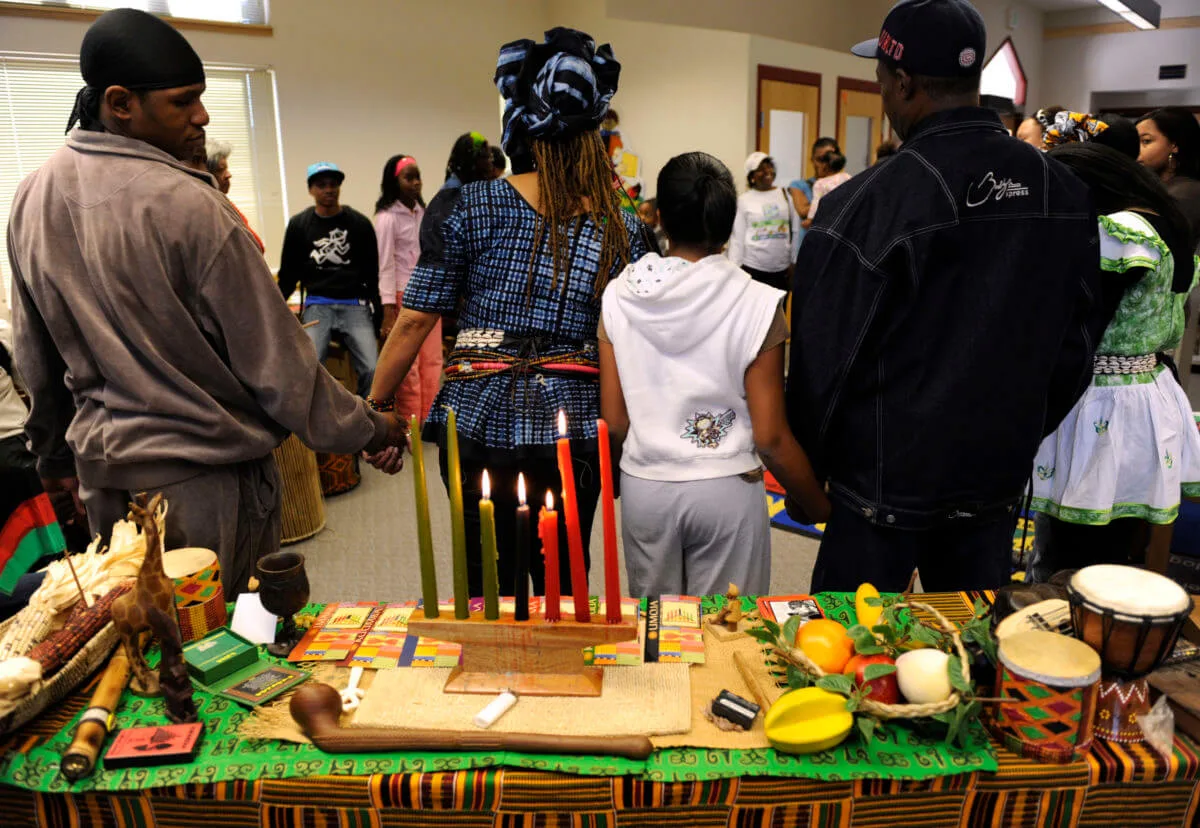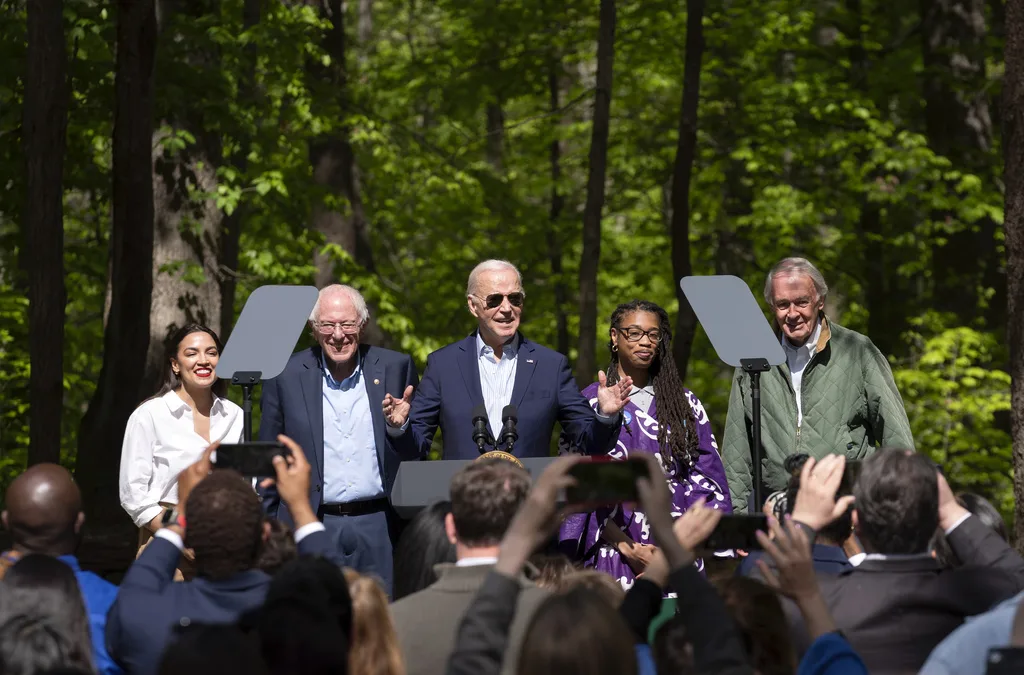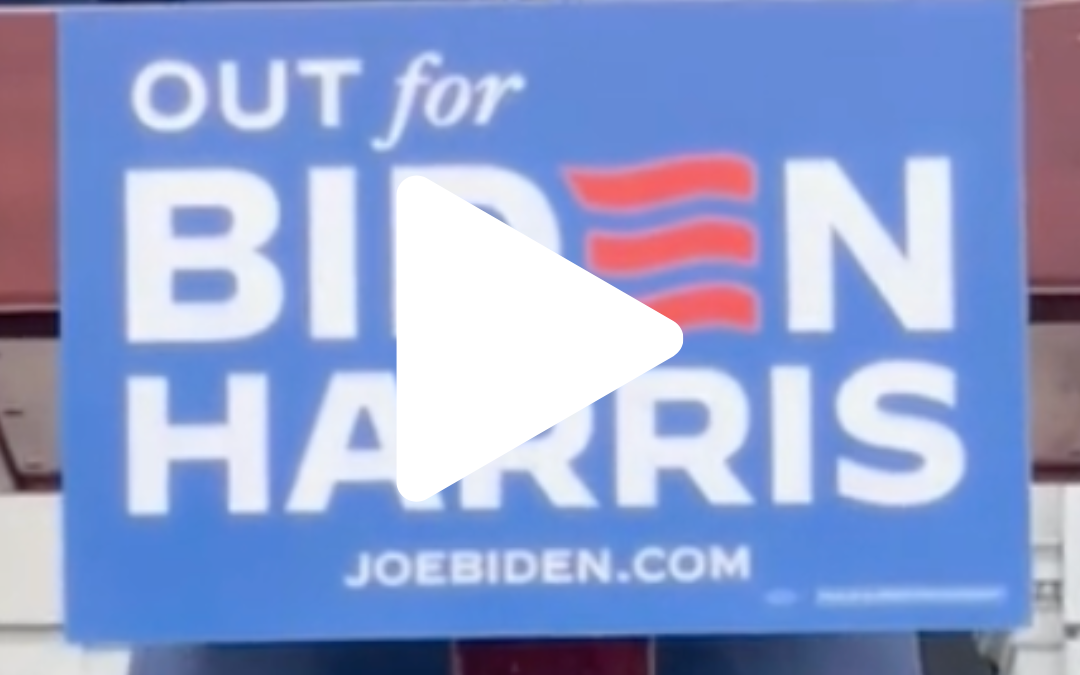
A Kwanzaa celebration is held on Monday, Jan. 29, 2008, as people gather around a table set for the event. Today is the fourth day in the seven-day Kwanzaa celebration. Day four, Ujamaa, recognizes cooperative economics. A program to educate children about Kwanzaa by a local Kwanzaa committee is hosted at the Pauline Robinson Library in Denver, where children could sing and dance and then make a Kwanzaa Mkeka-a straw mat where the Kinara, a candleholder with seven candles, is placed. Kwanzaa is an African American holiday which is celebrated everyday from Dec. 26 through Jan. 1. Kwanzaa is described as a festival with a cultural reaffirmation of a rich African heritage and emphasizes the the importance of working together. Kwanzaa is based on seven fundamental principles which are referred to as the Nguzo Saba. Kathryn Scott Osler, The Denver Post (Photo By Kathryn Scott Osler/The Denver Post via Getty Images)
Each of Kwanzaa’s seven principles has special meaning. Learn the meaning behind the Swahili words and how they can be applied to everyday life.
The Nguzo Saba: Kwanzaa’s Seven Principles
Umoja | Unity | Dec. 26
To strive for and maintain unity in family, community, nation, and race.
Kujichagulia | Self-Determination | Dec. 27
To define ourselves, name ourselves, create for ourselves, and speak for ourselves.
Ujima | Collective Work and Responsibility | Dec. 28
To build and maintain our community together and make our brothers’ and sisters’ problems our problems and to solve them together.
Ujamaa | Cooperative Economics | Dec. 29
To build and maintain our own stores, shops, and other businesses and to profit from them together.
Nia | Purpose | Dec. 30
To make our collective vocation the building and developing of our community in order to restore our people to their traditional greatness.
Kuumba | Creativity | Dec. 31
To do always as much as we can, in the way we can, in order to leave our community more beautiful and beneficial than we inherited it.
Imani | Faith | Jan. 1
To believe with all our heart in our people, our parents, our teachers, our leaders, and the righteousness and victory of our struggle.

Traditional Kwanzaa Symbols
Bendera | Liberation Flag
Represents Black people around the world, the struggle for freedom, and a prosperous future.

Mazao | Crops
Representing African harvest celebrations.
Mishumaa Saba | Seven Candles
Each representing the principles—or values—Black people should live by. There are three red, three green, and a single black candle in the kinara.
Mkeka | Straw Mat
Represents tradition and history; foundation.

Muhindi | Ear of Corn
Each ear of corn placed on the mat represents children living in the home or future children desired.
Kikombe cha Umoja | Unity Cup
A symbol of togetherness—both the principle and practice.

Kinara | Candleholder
Usually wooden, and representing Black people’s connection to the African continent.
Zawadi | Gifts
Like many other holiday celebrations, gifts are exchanged and represent the sacrifice and bond of parents, and their children’s achievements.

Politics

Biden marks Earth Day by announcing $7 billion in solar grants
The Biden administration on Monday announced the recipients of its Solar For All Program, a $7 billion climate program that aims to lower energy...

6 terrifying things that could happen if the Comstock Act is used to target abortion
Does 1873 sound like a really, really long time ago? Well, that’s because it is—but if Republicans and far-right anti-abortion activists have their...

Sheetz hit with lawsuit for allegedly discriminating against minority job applicants
The Equal Employment Opportunity Commission filed suit against Sheetz and two subsidiary companies, alleging the Altoona-based chain discriminated...
Local News

Conjoined twins from Berks County die at age 62
Conjoined twins Lori and George Schappell, who pursued separate careers, interests and relationships during lives that defied medical expectations,...

Railroad agrees to $600 million settlement for fiery Ohio derailment, residents fear it’s not enough
Norfolk Southern has agreed to pay $600 million in a class-action lawsuit settlement for a fiery train derailment in February 2023 in eastern Ohio,...





